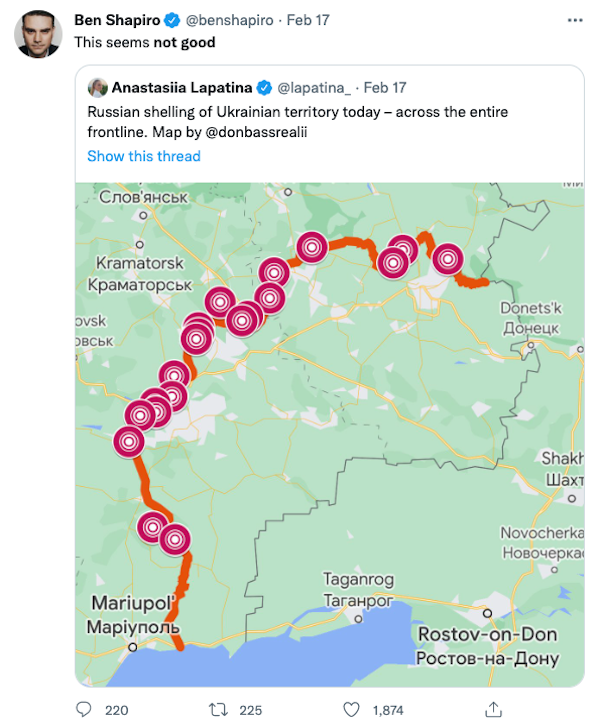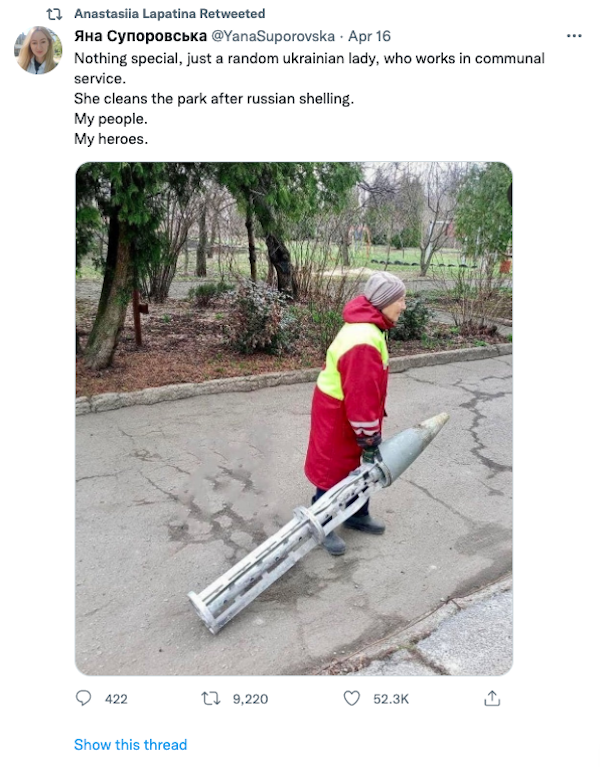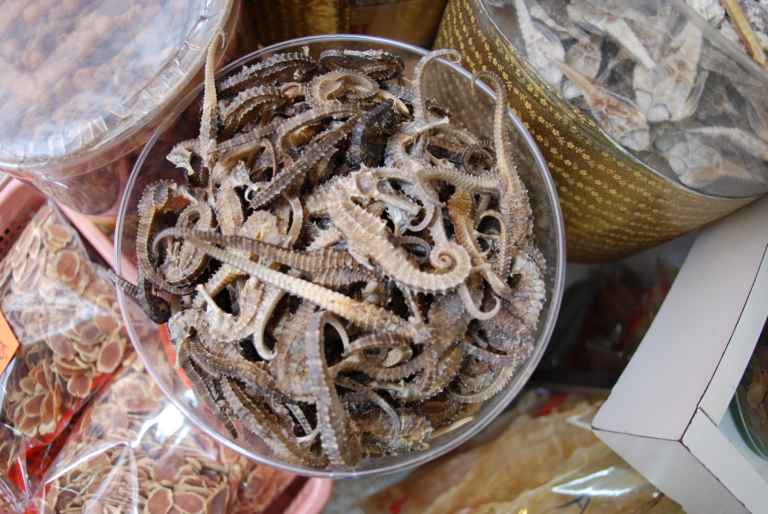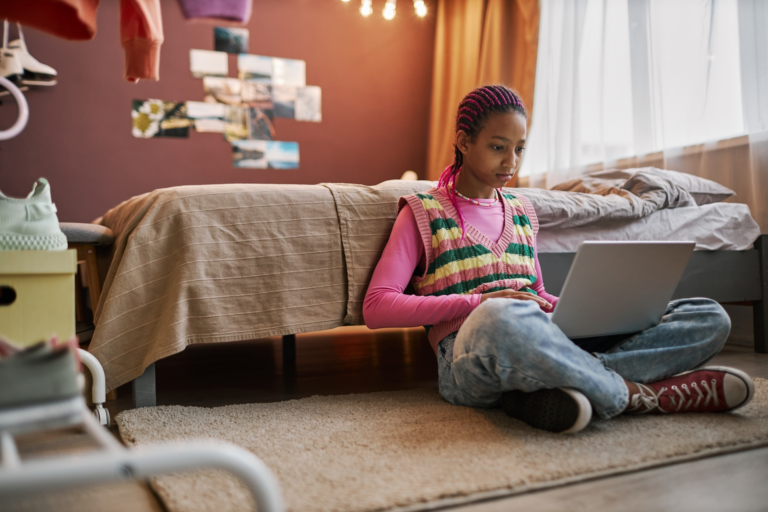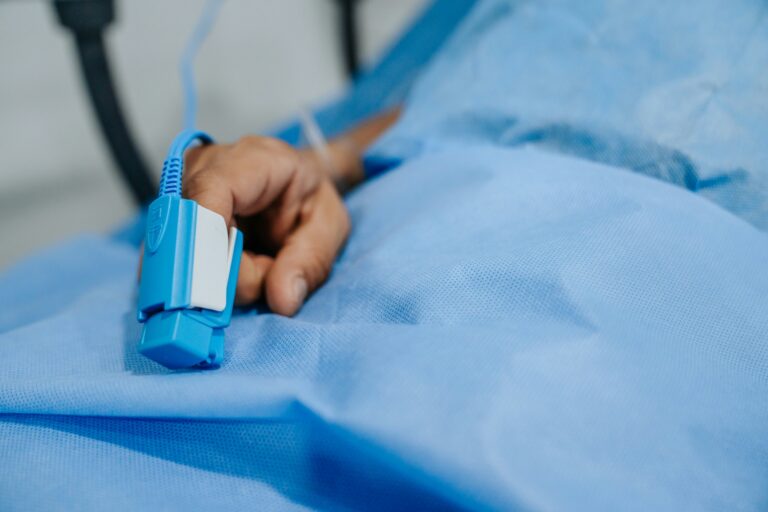Pandemic and Putin turn UBC student into war correspondent
UBC undergraduate student and journalist Anastasiia Lapatina has spent the last four months covering Russia’s invasion of her homeland, Ukraine, while studying political science full-time.
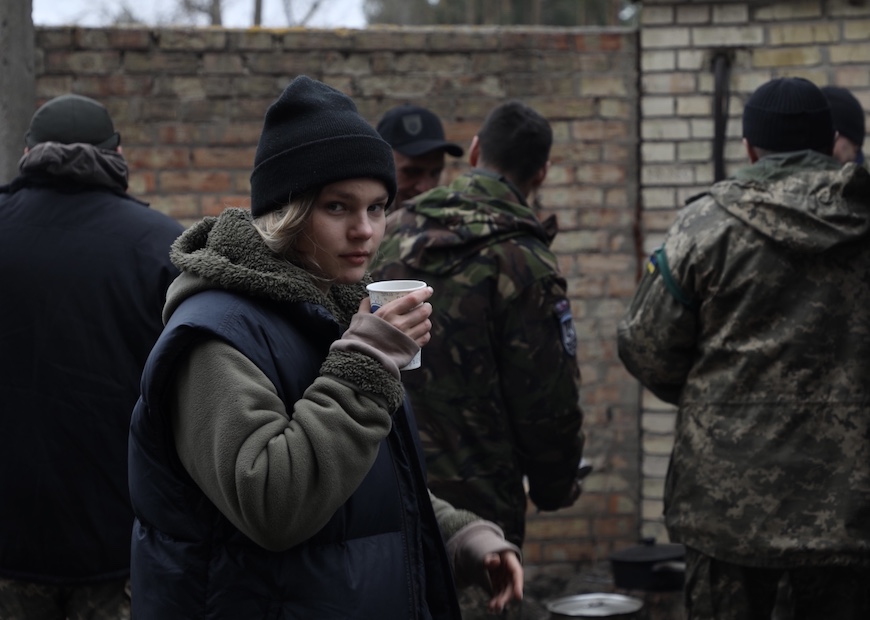
UBC political science student turned journalist Anastasiia Lapatina at work in the field. Credit: Courtesy of Anastasiia Lapatina
Anastasiia Lapatina knows that war correspondent is not a typical side hustle for a student.
Right now, she ought to be thinking about which fourth-year courses to take. Maybe talking with friends about her latest date. Whatever it is that 20-year-olds do, she isn’t that sure anymore.
“I probably shouldn’t be doing this,” she admits. “No one in their twenties should be covering the exhumation of a mass grave near their hometown. It’s not normal. I don’t deserve it.
“None of us deserve it.”
Lapatina is a journalist who writes for The Kyiv Independent. She has spent the last four months covering Russia’s invasion of her homeland, Ukraine, while studying political science full-time.
Like all UBC students, Lapatina had to pack up and leave campus in March 2020 when the pandemic hit. It was the end of her first year at UBC Okanagan. She flew home to her mother in Ukraine, unsure about what lay ahead.
She knew she wanted to write, though. As an English-speaking Ukrainian, she was able to secure an internship at The Kyiv Post, the long-time English-language newspaper of the Ukrainian capital. That became an ongoing part-time job while she was studying remotely during the pandemic year.
Then, during her third year, everything changed.
Lapatina was on exchange in France and still writing for the Post when on Nov. 8 its owner fired all 30 journalists. A local real estate tycoon, he didn’t like the newspaper critiquing the Ukrainian government, while the newsroom would never allow the owner to interfere with their editorial independence. Lapatina and her colleagues knew that a newsroom’s value lies not in the brand, but in the journalists who do the work.
So a few days later, they launched The Kyiv Independent.
“It was the worst time for Ukraine to not have an English global voice,” says Lapatina.
The world now knows why. Throughout 2021, Russia had been increasing its military presence along Ukraine’s borders and in the southeast, where it has occupied territory since 2014. This build-up accelerated through the winter.
Lapatina has many friends in Kyiv who fled the southeast after 2014. Through her network, she was able to connect with Ukrainians still in the Donbas region and report on what was happening there. On Feb. 17, as speculation mounted that a Russian invasion was imminent, she shared on Twitter a map of 20 locations that had been shelled that day. American conservative commentator Ben Shapiro re-tweeted it to his 4.5 million followers with the comment, “This seems not good.”
Lapatina had fewer than 10,000 Twitter followers at the time—four days before the invasion. Twelve days later, she had 240,000. Now she has more than 640,000.
In between stories for The Independent, Lapatina lets her followers see the reality of war through their smartphones in something close to real time. She re-tweets images of protestors being manhandled by Russian police, of civilians standing in shell craters, and footage of explosions captured by surveillance cameras. Days before the invasion, she live-tweeted Vladimir Putin’s televised address. Now, she amplifies photos of old Ukrainian women clearing public parks of rocket shells.
“I don’t think I’m doing anything special,” she shrugs. “Anyone can tweet. All the hype surrounding me and my colleagues at The Kyiv Independent is situational. It is only because we happen to be at war and we’re under attack, so everyone pays attention.”
Lapatina left France for Poland as soon as the war broke out. She wanted to be closer to home. She kept in touch with her mother daily as Russian troops seized the airport 20 kilometres away from their home, then flooded into the forest that bordered their village. Eventually, and reluctantly, her mother evacuated.
Lapatina couldn’t return home until April. By then, the Russians had retreated from Kyiv and her mother was back in her home. Lapatina had already seen photos of her village and thought she was prepared.
She was not.
The places where she hung out as a kid, where her family bought their groceries, where they went for dinner on Saturday nights, had been bombed, burned down, blackened and destroyed. Dogs roamed the streets looking for food, their owners either evacuated or dead.
She covered only one story while she was there. The mass grave. In the town of Bucha, she stood watching with dozens of other reporters and photographers as police and volunteers dug the bodies of civilians out of the ground.
The man who had buried many of those bodies was a family friend, a surgeon from Bucha. He granted her an exclusive interview.
“I listened to his first-hand testimonial about being in the hospital when Bucha was occupied, seeing hundreds of dead bodies littering the street, asking the Russians to bury them and the Russians saying no, then having to bury dozens of unidentified bodies himself.
“I heard all of that over a beer, so this was as personal as it can get.
“And also, like, I’m 20.”
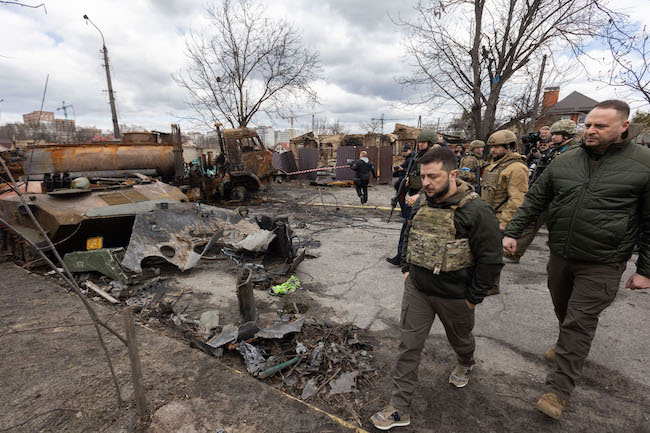
Lapatina is aware she has grown up fast in the past two years, That’s OK with her. She likes growing. She has an evergreen tree tattooed inside her forearm to remind her to keep doing it.
“So many people do nothing but school, and I think that’s the wrong way to spend your youth,” she says. “Adults love young people who do cool things. You should be knocking on doors. There are so many doors, they just need to be opened. Anyone can go to lectures. It’s what you do after those lectures that’s actually going to get you places.”
The places she wants to go are in the Middle East. In five years, she hopes to be a war correspondent there.
Lapatina has now been away from Canada for two years. UBC campuses are back open. She will return to the Vancouver campus in September. She will write essays about 17th-century economists. She will complete her bachelor’s degree in political science.
And she will continue to work as a freelance journalist, because she can’t stop now.
Anastasiia Lapatina has some limited availability for interviews in English or Ukrainian, from European time zones.
